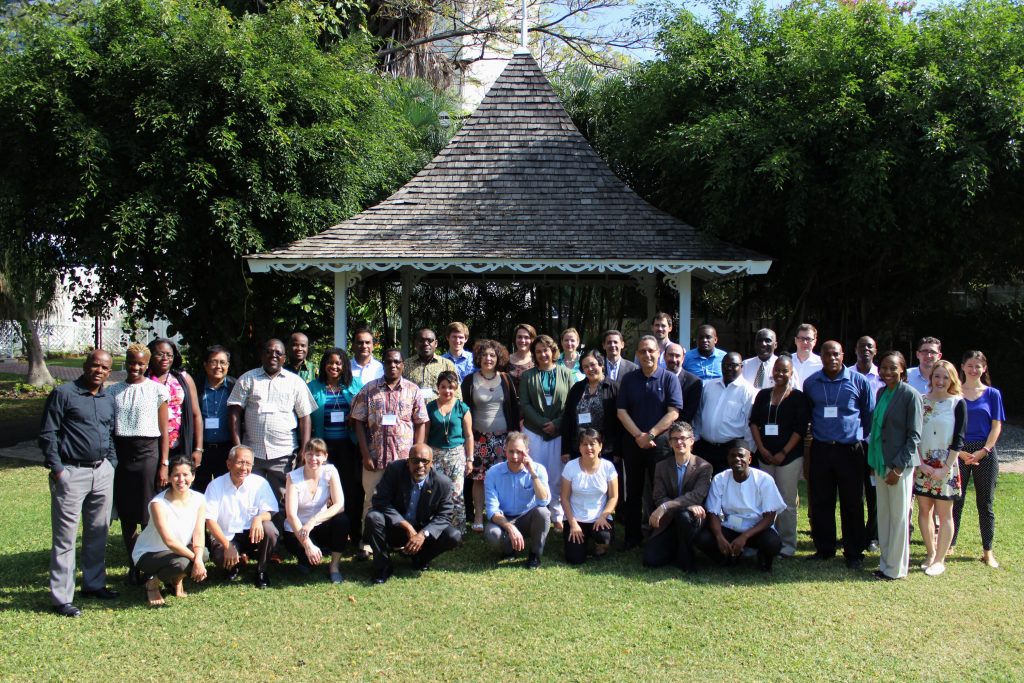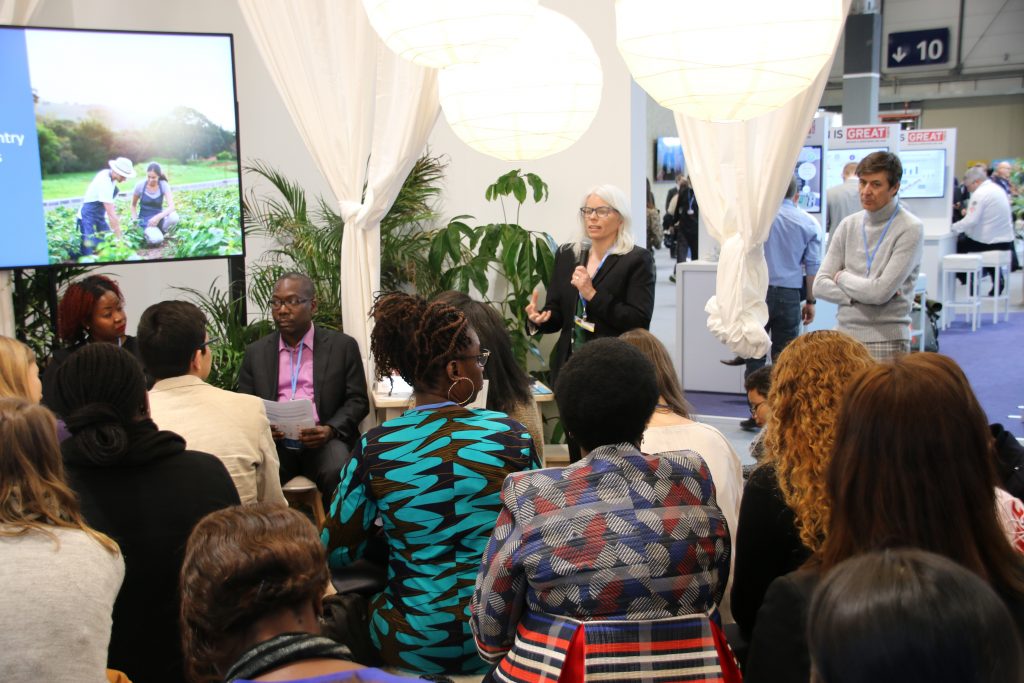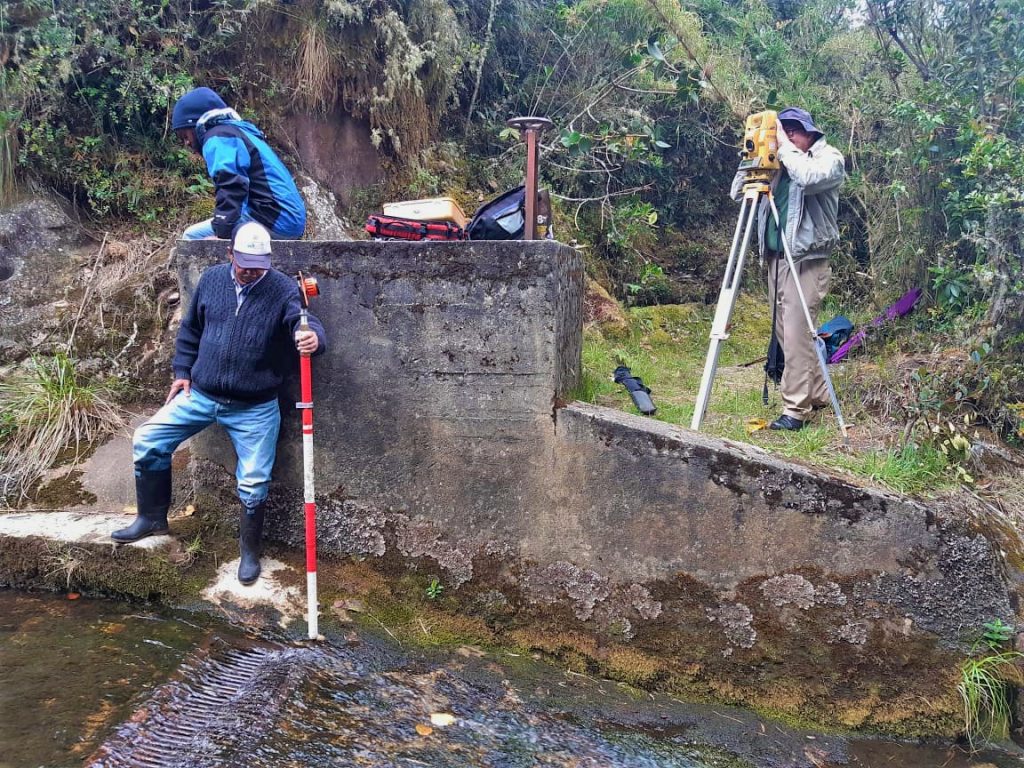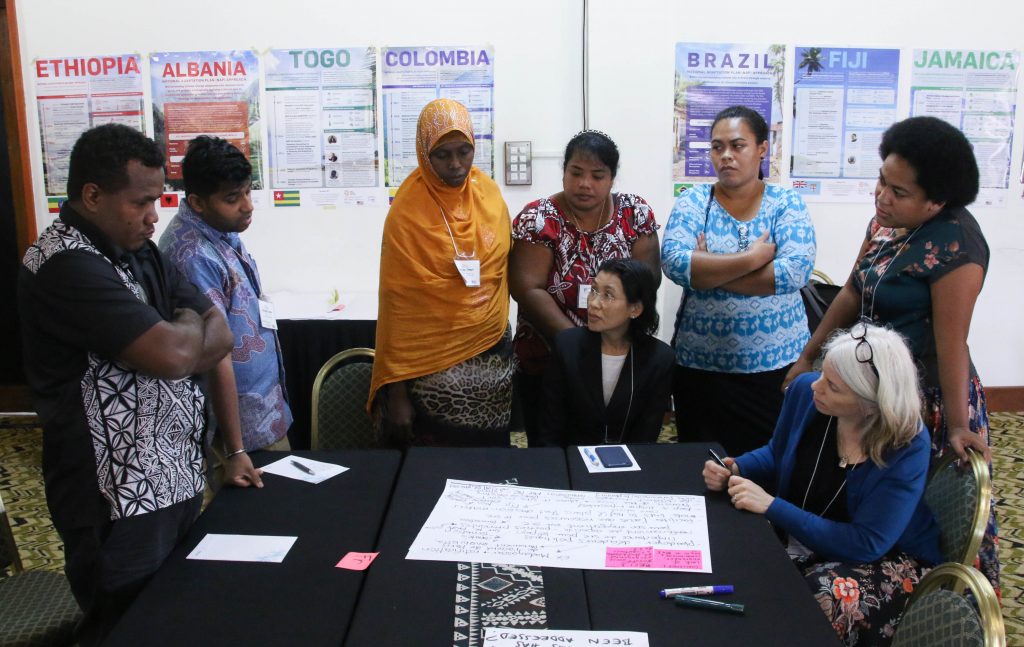Between September 2015 and September 2020, the United States Department of State (USDS) provided the single largest source of funding for scaling up the NAP Global Network, which, alongside key investments by Canada, Germany, and Austria, helped the Network make progress toward its mission. An independent evaluation of the work accomplished with U.S. funding from 2015 to 2020 was conducted to assess progress and provide recommendations for how the Network should move forward.
The Value of the NAP Global Network
An independent evaluation of the NAP Global Network’s resources, influence, and activities that were achieved with this 5-year grant was conducted by Le Groupe-conseil baastel ltée. Baastel’s team received feedback from 146 Network members and conducted 22 in-depth interviews with partner organizations, Network Secretariat staff, and country representatives from Colombia, Ethiopia, Fiji, and Saint Lucia.
Overall, this evaluation found the NAP Global Network to be “a valuable contributor to the NAP process.” According to Baastel’s team, the Network succeeded in helping countries achieve higher-quality outputs from their NAP processes, contributing to the global discussion on NAPs, and providing practical knowledge on several important topics like gender, monitoring and evaluation, and private sector engagement. As the evaluation team noted:
The Network is considered an “honest knowledge broker” and established a space that is considered “safe” or “neutral” outside of the political UNFCCC context where government representatives can discuss without the pressure and postures of negotiations.
The evaluation also found that the Network exceeded the targets that were set out in the USDS grant.
| Indicator | Target (as of 2019 amendment) | Achievement as of June 2020 |
| Number of people trained in climate change adaptation supported by U.S. grant assistance | 2,069 | 3,303* |
| Number of institutions with improved capacity to assess or address climate change risks supported by U.S. grant assistance | 129 | 222 |
| Number of laws, policies, regulations, or standards addressing climate change adaptation formally proposed, adopted, or implemented as supported by U.S. grant assistance | 42 in at least eight countries | 79 in 19 countries |
The NAP Global Network did not reach these targets alone. Collaborating with other programs and organizations allowed the Network to access additional knowledge, resources, and platforms that were essential to the success of certain projects and events.
“We would like to extend our sincere thanks to all of those who took the time to share thoughts and insights on how we can best contribute to advancing national adaptation planning and action“, said Anne Hammill, Director of the NAP Global Network Secretariat.
Moving Forward
As a multi-donor initiative, the NAP Global Network will integrate Baastel’s recommendations into its strategy for 2021–2025. The full list of recommendations, available here, provides insight on how the NAP Global Network can improve how it tracks its impacts, strengthen partnerships with other NAP support programs, and leverage the expertise of Network members.
The NAP Global Network aims to be able to respond to the changing needs and priorities of countries’ climate plans, as well as the evolving global climate landscape. With reflections from this evaluation and the recommendations, the Network will maximize its impact in supporting developing countries to prepare for and thrive in a changing climate.
Join our fast-growing network here or get in touch with the NAP Global Network at info@napglobalnetwork.org.
Response to Independent Final Evaluation of the United States Department of State Support



